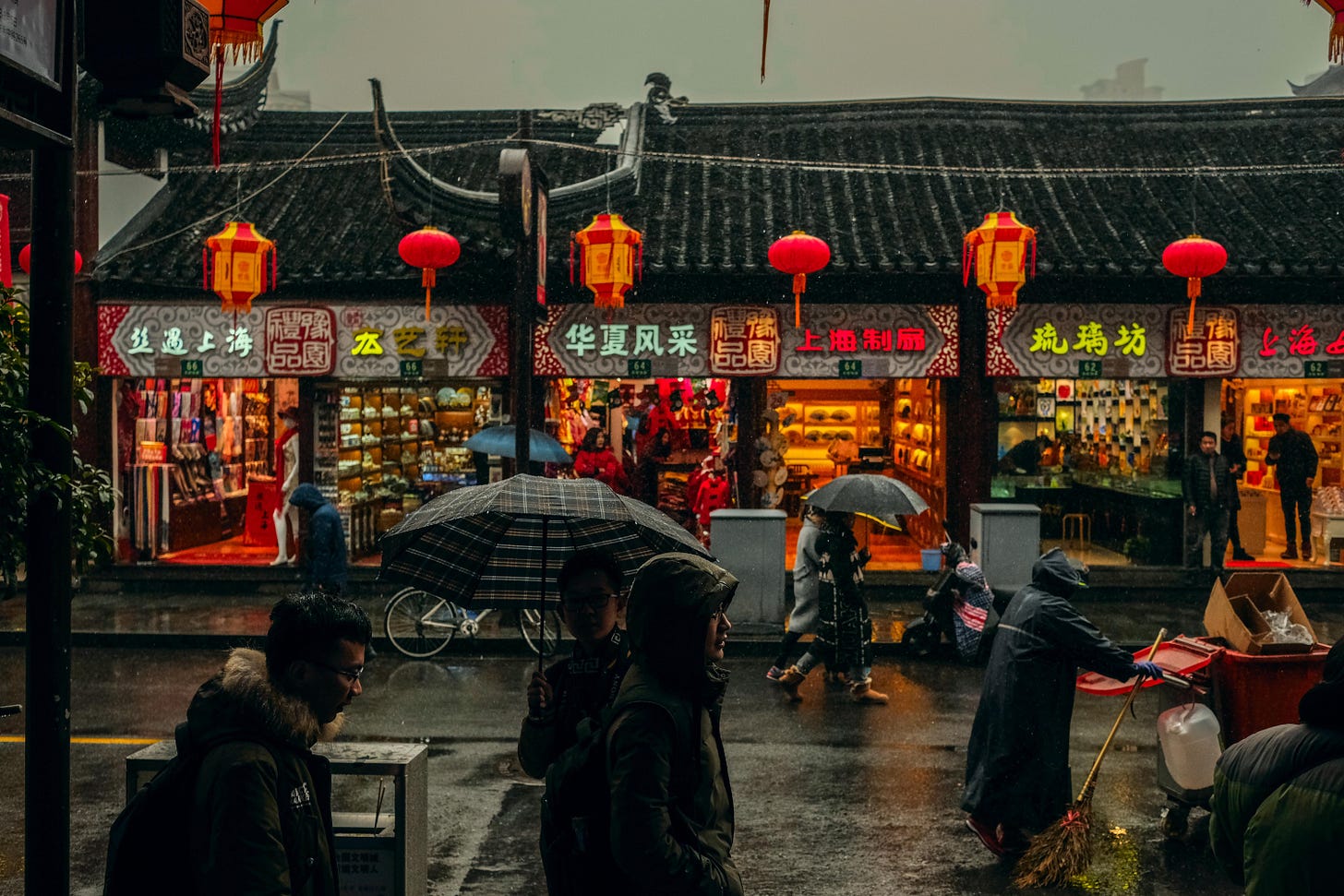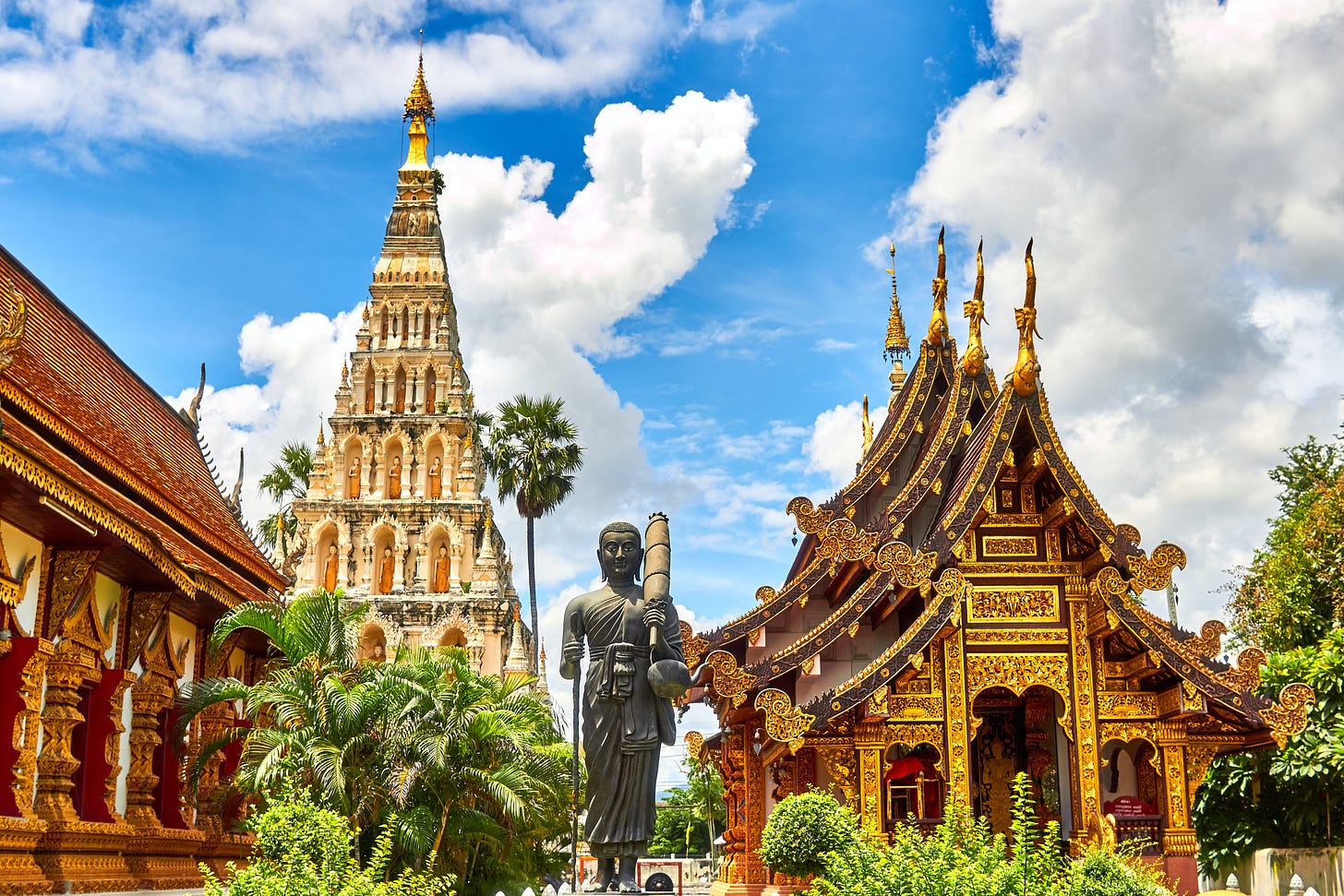Can you feel it yet? Have your senses picked up the vibe?
Well, they should have, because it is definitely out there and it is building fast.
You and I weren’t around during the ‘Roaring Twenties’ but I am old enough to remember the ‘Swinging Sixties’.
And what did these two remarkable decades have in common?
Each decade was the reaction to prior years of deep depression, war, famine, poverty, and pestilence. And that was in the days before globalisation, social media, and a population of 7.5 billion all needing to be fed, watered, educated, employed, and entertained.
Those with money and an ever-watchful eye on change know what is coming. They’ve picked up the vibe.
How though?
Because they have gotten rich by understanding human nature. And even a cursory study of human psychology tells you what happens when people and populations are forced to constrain themselves, are locked down, required to forgo their normal pleasures, expectations and delights in order just to survive.
They go out and enjoy some ‘rock and roll’.
The New Abnormal
What humanity has gone through this past 18 months is not normal, it is utterly abnormal, and it is not over yet, but the light is definitely glimmering now at the end of that long, dark tunnel.
As that light gets brighter then so will human behaviour start to change. There will be a palpable building up of energy and hope, as people plan their holidays, their spending, their travelling, and seek in a myriad of ways to put all this covid-induced restraint behind them.
Countless millions of us are now bored senseless.
Lockdown has lost whatever attraction and novelty it once had to become nothing more or less than a tedious imposition on our natural desire for sociability, fun, spending, and getting out and having a damn good time. Even getting out and have a damn good walk in the park would be something special for millions currently reduced to pacing around their matchbox-sized condos.
The Roaring Twenties introduced the ‘jitterbug’ a crazy exhibitionist dance which was more acrobatics than rhythmical style, while the Swinging Sixties (and mid-fifties) brought us good ol’ Rock n’ Roll along with a youth culture revolution.
I have no idea what the ‘21st Century Twenties ‘ will usher in but I’m sure it won’t be moderate and constrained. It will be flash, lavish, conspicuously consumerist, and very energetic. Never mind that the credit card is already maxed out, let’s push it a bit further. Your bank is willing to help, certainly with interest rates falling to near-zero.
And after all, one lesson we’ve all learned this past year is how short life is, so better make the best of it.
A leading UK economist described the current situation like a “coiled spring, ready to release large amounts of pent-up financial energy”. While L’Oreal, the world’s biggest cosmetics group is happily predicting a ‘fiesta in make-up and fragrances’.
And, when it happens, what might this release of pent-up spending look like?
One business/profession that is certain to receive a boost is international education.
International Schools about to hit the dance floor
Money hasn’t disappeared this past year, it is still around, only less of it is in the pockets of the average employee and more in the pockets of some already very wealthy people.
The only dilemma such individuals have is where to put their money. Right now, almost anywhere has to be better than a deposit account.
No surprise, then that there are a lot of rich people busily looking for investment opportunities and what better an opportunity than international schooling?
However, what most wealthy entrepreneurs know about international schooling could be written on one of their dollar bills, so in the spirit of the information age, I share some market knowledge to help the wealthy get, yes, wealthier.
First off, let’s address Covid-19.
My advice is to ignore it, because although the blessed virus will never go away, nor will the need for quality education and investment.
Which leaves us considering the most important variable – location.
These are my top three locations for new investment in independent or international schools, together with my rationale for choosing them:
1. CHINA
No serious conversation can be had about international schooling without factoring in the China syndrome. And what a syndrome. If you can pierce the fog of mystery surrounding what China does next then you are a far more accomplished China-watcher than myself.
But let us look as some of the variables, both positive and negative:
A. Hong Kong: This is most definitely a negative. The China government is clearly intent on ensuring the wayward HK people come under the sway of the Red Flag and if that necessitates control of education and the imposition of a ‘patriotic curriculum’ then so be it. Where that will leave the elite international schools, liberalist universities, and a population used to expressing itself in the spirit of freedom of speech, who knows? But only the very brave, rich (and patient) would invest in international schooling in HK right now.
B. Demographics: Here is a bigger negative than HK. Even the centralist Chinese government is discovering that if women decide not to have children then there’s not much they can do about it. Not a good time to open pre-schools what with a current 15% decline in registered births and that is just in the last 12 months. But one shouldn’t be surprised at this – the declining China birth-rate has been speeding up since 2015 and there are no signs of it slowing down. Though that still leaves over 10 million new arrivals per annum needing to be schooled.
C. Wealth: now to the positives and money is one of them. China was the only major economy posting a growth in GDP for 2020, at 2.3%. In fact, with GDP up 6.5% in the last quarter, China mainland is back to its pre-Covid trajectory. Only Taiwan and Vietnam can make the same claim. But where in the past the Chinese government stressed a growth model based on manufacturing, today that growth model is based on education. Which takes us to our next positive.
D. Skills: If you’ve not yet read this McKinsey report ‘Reskilling China’ then you really should. Like all McKinsey reports it is packed with solid evidence and all the evidence points to a single conclusion – China is determined to become a high-tech, skilled economy an agenda that will impact on every Chinese person in some way or another. I’ve been in education long-enough to be wary if not cynical when governments claim to be ushering in a ‘culture of lifelong learning for individuals and employers’, but I have no doubt this is the direction China is heading, and relentlessly.
E. Momentum: If you imagine that growth in international schooling in China is on the wane, then just read the 2021 annual report by the British Independent Schools in China. I doubt any single individual or company can keep track of the expansion of the British Independent school brands in China right now. Let’s just say the last time Britishness was so prominent across China was in the days of the Qing dynasty.
F. Opportunity: Yes, we’ve all heard of Shanghai, Beijing, Shenzen and Guangzhou, and we know the Pearl River Delta region of 70 million inhabitants is one of the world’s most successful economies, but have you heard of Nanyang, Weihai, Guilin, Shantou, Weifang, Ningde or Jilin? Probably not, but these Tier 3 Chinese cities are where the growth in international schooling will take place over the next decade. Why? Because there are still tens of millions of Chinese keen to join the ranks of the middle class and being middle class means being educated to international standards.
Lastly, a variable that I cannot decide is a positive or a negative. Perhaps you can.
G. Staying Home: In February the Chinese government blithely announced it was ‘building a mechanism to discourage minors from studying abroad’. Bearing in mind that in 2019, 700,000 Chinese residents did precisely that, many of them to international schools in South East Asia, this is a big step towards the Chinese government’s intention to crack down on what it describes as ‘creeping Westernisation’. Apparently, the government loves its citizens getting educated, it just isn’t keen on them thinking too much. The positive is, of course, that this could simply mean international schools in China enlarge their home market by several hundred thousand.
2. Thailand
Thailand is a blessed country, protected by its multitude of heavenly spirits – Buddhas, monks and assorted Gods. When life gets decidedly unpleasant elsewhere, even in neighbouring countries, Thailand somehow manages to remain for the most part as detached and serene as the visage of its Golden Buddha. That said, it hasn’t been left exactly unscarred by Covid-19, but then again, how many countries have?
Economy: Yes, it has well and truly tanked. If you can find anything positive in the current Thai economic situation, please let me know. Even the Thais didn’t realise how reliant they were on global tourism – until it disappeared last year. To put it in perspective, fewer tourists arrived in Thailand in the six months prior to February, than would normally enter in a single day pre-Covid-19.
Yes, reflect on that statistic.
How has this affected international schools in Thailand? Well, as they say, capitalism can be cruel and only the strong survive. Many of the top-tier schools are doing okay, indeed I hear that several of them have even increased their roles. But most independent and international schools are in the pits. Even if they have students they’ll be having trouble getting the fees from increasingly destitute middle-income parents.
Birth Rate: It is becoming increasingly apparent that it’s not only the Chinese who have given up procreation - so has the rest of the world, including Thailand. The drop in the Thai birth rate is now being described as ‘alarming’. At current fertility rates, by 2030 the birth rate will be down to 1.3. According to the World Health Organisation, it needs to be at least 2.1 just to keep a country ticking over in terms of ageing, human resources, and economic growth.
Economy: Sorry, didn’t I just post this as a negative above? Yes, I did but let’s look at the economy from a different angle. If you have the cash in the bank, and most Thai corporations do, then there can be no better time to invest in property, businesses, and land. Which explains why there is now a lot of interest in buying failing schools (and hotels) in Thailand. Just buy cheap, do your renovation, and wait for the day when no one has to wear a mask to go to 7/11.
China: If I were opening an international school in Thailand, I’d want it to be boarding – otherwise how am I going to ensure that vital 20% - 30% of my enrolments come from wealthier overseas countries? And my priority market would be China – just so long as the Chinese government doesn’t decide to remove the passports of its young citizens.
British: Despite the best efforts of an infantile government, British soft power remains fairly robust, at least in the eyes of most Asian parents. Combine Thai hospitality with low start-up school costs, mix in the magic sauce of British education, and hey presto, out pops a highly attractive international school offer for parents across Asia - and a nice earner for independent school operatives.
Health: It is taking a while but people around the world, and especially in Asia, are waking up to the fact that Thailand is a very safe country to live in – so long as you don’t ride a scooter. Having less than 90 deaths from Covid (at time of writing) puts Thailand in the top 3 countries for coping with the virus. Certainly, Thai medical provision is a whole lot better than any of its neighbouring countries, especially its entrepreneurial neighbour, Vietnam. I know, I’ve been a patient in both Vietnamese and Thai hospitals and really no one would choose the former if they could check-in to the latter. Where better to send your beloved kids to study than to a country with world-class hospitals?
3. United Kingdom
Now here’s a strange one. Why on earth would I include the UK in the list of countries most attractive to new investment in independent schools?
Not only is the UK on its knees, economically, the very notion of a ‘United Kingdom’ is hanging on by the thread of Scottish and Northern Irish willingness to continue waving the Union Jack.
The answer is very simple – many UK independent schools are heading towards bankruptcy. Enrolments are seriously down, fees are being slashed, and that is not just because of Covid-19 but because of the increasing reluctance of Asians to send their children to the UK – why bother with the risk and the cost when there are now so many UK independent schools with branches in China and across South East Asia?
Add in the fact that Chinese education companies such as Bright Scholar and Wanda Group are not only flush with cash but heartily supported by the Chinese government in their quest for global expansion, and you can readily see why the UK independent school sector is now a honeypot for global investment by asset-hungry Chinese corporations.
And to see just how active these corporations have been in buying up UK independent schools, here is the list of schools already acquired by them:
Abbots Bromley
Heathfield Knoll
Thetford Grammar
St Michael’s, Llanelli
Bournemouth Collegiate
Bosworth Independent
Ipswich High School
Wisbech Grammar
Kingsley School
Riddlesworth Hall Prep school
Adcote School for Girls
Myddleton College
Chase Grammar School
St Bees School
Abbotsholme School
Bedstone School
CATS colleges
No doubt there are more acquisitions in the pipeline. Not surprisingly, this “Communist takeover” of British independent schools is attracting the attention of right-wing media and UK politicians.
Where will it end?
Well, after the rhetoric, posturing, and self-righteous indignation of middle England has died down, at least these schools will have survived.
And if you find it unpalatable that foreign buyers (from whatever country) are getting their hands on the private sector of UK education, especially those schools historically connected to British royalty, just answer these questions:
Isn’t this exactly what global capitalism is all about? A. Of course it is.
And who started global capitalism?
Answer: The British.
So, if you are looking for some post-Covid international educational ‘rock and roll’, I suggest you start looking in these three countries…the party might just be about to get started.
INTERESTED IN INTERNATIONAL SCHOOLING?
Practical and easy-to-access, ‘International Schooling: The Teacher’s Guide’ provides insight into one of the biggest, and most exciting, career transitions and life adventures many teachers ever make.
Whether you are new to this world or experienced, this authoritative text introduces, examines and unpicks the highs, the lows, the perks and the pitfalls of international schooling.
For anyone aspiring to, new to, being recruited into, or currently enjoying international teaching, it is essential reading.
AVALIABLE VIA
Amazon (US)
Amazon (UK)
Barnes & Noble
Book Depository
Books A Million
Enjoying EDDi?
As ever, if you are enjoying EDDi, please consider forwarding it to someone who would get a lot out of it.
If you were forwarded this email, you can subscribe to receive EDDi every fortnight.








